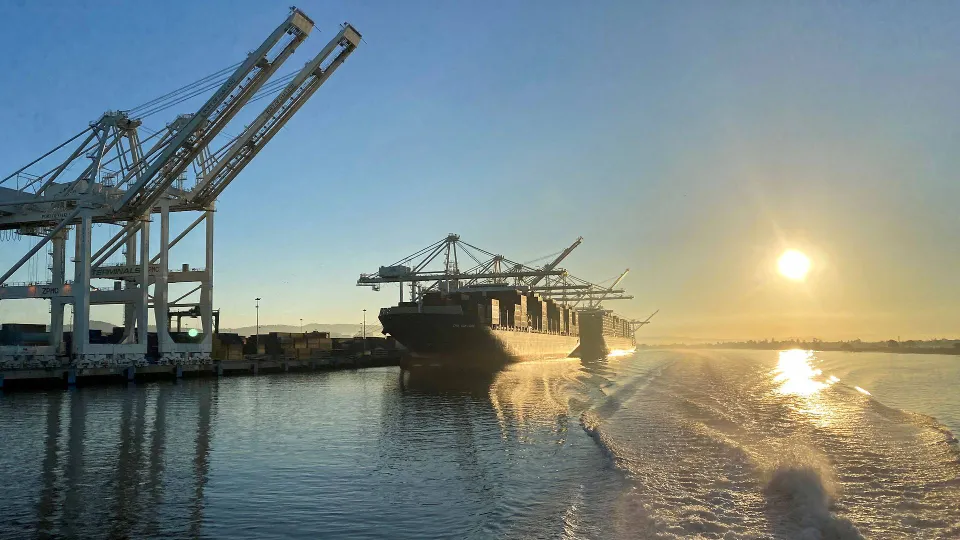US decision to halt imports of Russian oil pushes oil prices up and may hit shipping in the long run if global demand dives, assesses analyst Lars Jensen. Carriers already have to pay significantly more for fuel, and the high oil prices may threaten global demand.
The US and UK decision to stop all imports of oil and gas from Russia will make the already high oil prices soar even further, and the development may end up undermining the shipping market if demand starts diving, forecasts container analyst Lars Jensen of Vespucci Maritime.
The imports halt is the latest set of sanctions introduced by western players against Russia, sanctions that have made prices on oil and gas increase since the Russian invasion of Ukraine. In the end, the soaring prices may limit demand, states Jensen on LinkedIn.
The final impact could come from a drop in demand, especially into Europe, as the skyrocketing energy costs eat into consumer spending
Lars Jensen, Ceo, Vespucci Maritime
”The final impact could come from a drop in demand, especially into Europe, as the skyrocketing energy costs eat into consumer spending,” writes the analyst.
Wednesday, the European Commission proposed a hasty reduction of European dependence on oil and – in particular – gas from Russia. According to the proposal, the EU countries ought to decrease Russian fuel imports markedly this year already by finding alternative suppliers. On the long term, the green transformation and energy savings are to reduce the fuel dependence on Russia.
Significant price increases
The western sanctions and initiatives have made prices on oil and gas soar massively.
The bloated prices also put their mark on shipping, where the price on a tonne of very low-sulfur fuel oil (VLSFO) Monday exceeded USD 1,000, a price that may increase further, according to Jensen. That may lead to bunker surcharges (BAF) from the side of container carriers in order to cover the growing fuel costs, he predicts.
In contrast to previous periods with high oil prices, the carriers may, however, choose to swallow the bill instead if they ”remove (or freeze) the BAF in an effort to begin to mend fences with shippers in anticipation of a future normality where customer relations begin to matter again once the ships are not completely full,” writes Jensen.
Thanks to the sky-high rates, container lines are currently able to cover the extra fuel costs, views the analyst.
Wednesday morning, a barrel of European reference oil Brent costs USD 131.19 against USD 131.39 Tuesday afternoon, according to Marketwire. US benchmark WTI is trading at USD 126.19 compared to USD 127.35 Tuesday afternoon.
World’s leading crude oil exporter
Russia is the world’s largest exporter of crude oil and fuel with 7 million barrels per day, equivalent to 7 percent of the global supplies. The Organization of the Petroleum Exporting Countries (OPEC) warns that it’s not possible to replace Russian oil on the short term.
”There is no capacity in the world that could replace 7 million barrels per day. We have no control over current events, geopolitics, and this is dictating the pace of the market,” said OPEC Secretary General Mohammed Barkindo at an industry conference, according to Reuters.






